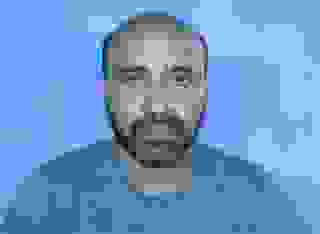- Gay Male
- French Letters
- Page 2
Note: You can change font size, font face, and turn on dark mode by clicking the "A" icon tab in the Story Info Box.
You can temporarily switch back to a Classic Literotica® experience during our ongoing public Beta testing. Please consider leaving feedback on issues you experience or suggest improvements.
Click hereAt length, though, now-Lieutenant Colonel Powell became impatient with the time his lieutenant's convalescent was taking and he dispatched two soldiers back to France to bring Collier to Heidelberg. They arrived during the day when both Nurse Celestine and the doctor were at the hospital and, permitting Collier to do no more than leave a note of thanks and affection for both, the soldiers escorted Collier out of Colmar.
The twenty-year-long exchange of love letters between Edmund Collier and Celestine Langhorne commenced as soon as the lieutenant arrived in Heidelberg. He most often wrote his letters after arising in the middle of the night after having been fucked by Lt. Colonel Powell in his bed as one of the duties the lieutenant, soon to be elevated to captain, as aid-de-camp to Powell, whose unit had been assigned to guard a trove of art housed in Heidelberg Castle and stolen by the Nazis until art curators could arrive to inventory and disburse it.
Collier wrote a lot of letters. Lt. Colonel Powell was a virile, vigorous, demanding, and frequent lover.
* * * *
June 1966, Colmar, France
"Excuse me. I'm sorry to bother you but, by any chance, does Celestine Langhorne still live here? I have some letters she wrote that she might like to have back."
The man who answered the door at the stone house opening nearly directly on the road on one of the older streets of Colmar had once been handsome and straight and tall, but now he had the skeletal look of a long-ill man in his fifties, who was a bit stooped and too dependent on a walking cane. He looked at me at some length before speaking that I, though speaking, I knew, excellent French, as it was one of my professional working languages, thought perhaps the elderly gentleman hadn't heard me. But he had. He nodded, stepped to one side, and said, "I think you'd better come inside."
It was a stately house, well appointed inside, and expensively, although sparsely, furnished. It was obvious that the man indeed was unwell and had been for some time, as the furniture in the hall and the parlor in which I followed the man was what was minimally required and spaced to facilitate movement of the wheelchair that sat in the corner. A studio couch, with bedding on it, was located in a bay window on the garden side of the house. There were upper stories here and the man likely lived in the downstairs floor so that he didn't have to navigate stairs.
"I'm Claude St. Germaine," the man said when we entered the dimly lit parlor. There was a door on the opposite wall leading to a much better illuminated large room beyond that, I was able to see. Greenhouse glass ran up the garden wall and across the one-story ceiling of that room.
"I'm Eddie Collier, the son of Edmund Collier. Eddie, short for Edmund, to keep us apart in the family," I said, noting that the man's eyes flashed a bit when I introduced myself. "I live in New York—in America. But I was in Europe for work and thought I'd return some letters if Ms. Langhorne is still living here."
This Colmar village house was the return address on all of the love letters to my dad that were in the packet over a twenty-year period. I had been sent to the UN offices in Geneva for a translation project. I'd held on to the letters for a year. Colmar was less than a four-hour drive from Geneva, and I had wanted to do some traveling in the area after my project was finished anyway, so the excuse of that to return the letters seemed natural. I couldn't say that I wasn't curious who this Celestine was who had carried on a love affair with my father for so long from afar. I was well past resenting that they had been involved while my father was married to my mother. I had always known there were strains in the marriage but that both of my parents clung to it, and I didn't consider a long-distance affair as being sexually damning.
"Yes, I knew who you were—or at least whose son you are," St. Germaine said. You look the spitting image of Edmund when I knew him. That you have the same given name threw me a bit, though.
"My name. Oh, yes. My father and I were always tripping up people with our shared name."
"Were?" the man said.
"Yes, he died last year—in June."
"In June?" The man tottered on his cane and I helped lower him into an overstuffed chair. There was one near it, set at an easily-conversational angle, and, as the man gestured for me to be seated, I sat there. I took the small stack of letters out of the briefcase I was carrying. St. Germaine gave that a look and twitched.
"Your father is gone? I'm sorry to hear that. We worked so hard to keep him alive. But that was some time ago, wasn't it?"
"We?" I asked. "I know, from these letters—sorry, I was asked to read them and to destroy them if they weren't important, but I thought they might be important to someone—to this Celestine, who wrote them. I understand that Celestine was the nurse who took care of my father when he was wounded near here in the war. You knew him then too?"
"Oh, yes. I knew him. I was his doctor. We had quite a time of it, first keeping him alive from the infection in the leg and then fighting with him to save the leg. I hope he did manage to keep it the rest of his life."
"Yes, he did. Oh, don't get up if you don't—"
But the doctor had already stood from his chair. "May I get you something to drink—wine or coffee. We do need to talk, I think."
"Water would be fine," I said. The man obviously wanted to extend hospitality and didn't want me to think that his disability prevented that.
"I hope you don't mind if I have a bit of wine. I do this time of day, and this has been a bit of a surprise for me."
"I'm sorry. If Ms. Langhorne—"
"I'll be back in a moment." He walked toward the light, entering the room at the side that seemed to be all glass—or at least all glass on the garden side. The front of the house had all been stone. After he was gone, I stood and roamed around the room, admiring the beautiful things the doctor had accumulated over the years. I stopped and picked up a framed photograph. It was of two men, one significantly younger than the other. The older of the two quite evidently was a younger Claude St. Germaine. Both men were handsome and well formed. They were smiling and their arms were locked together.
St. Germaine returned to the room with my water in a crystal goblet. He had a bundle of envelopes under his arm, which he dropped in the chair he had been sitting in. He handed the water to me. "I'm sorry. I can only carry so much at one time. I'll be back with my wine in a moment." He saw that I was looking at the photo on a shelf, but he said nothing and turned and hobbled back into the room of light.
There was something about the room of light beyond this parlor that I found familiar but I couldn't quite pin that down, and I was concentrating on St. Germaine now. I was very much attracted to the Claude of the photograph and regretted that we were only meeting now.
When St. Germaine returned this time with his wine, he also was carrying another photograph.
"Please sit. I'm afraid I must." He sat in his chair, pulling the bundle of envelopes out and putting it and the photograph he'd brought in on his lap. Each of the chairs had a small table beside it where we could put our drinks. I sat in the other chair.
"That photograph you were looking at . . . and this one here . . ." Claude handed me the other photograph, "these are of us—the one on the shelf is Celestine and me and this one is of Celestine, your father, and me. I'm sorry if this disturbs you, but Celestine was a nurse, yes, but he was a man, not a woman."
"A man? Was?"
"Yes, and I'm sorry, but Celestine died . . . last year . . . in May. He had been taking care of me . . . I have a slow-developing cancer . . . but Celestine was the first to go. Somewhat ironic in a perverse way, I think. He always said he planned to visit the States—that he had someone there he wanted to visit. I always thought it was your father he wanted to visit, and I felt guilty that he felt he had to stay here and take care of me instead."
Yes, it was a surprise to me that Celestine was a man rather than a woman, although, when I thought about it, I realized that Celestine could be a name for either in France and that nurses could be male as well as female. I couldn't be greatly surprised, knowing my father's relationship to General Powell, that Celestine was male.
"When again did Celestine die?" I asked, looking at the new photo and having no trouble discerning the affection that all three men had for each other. The photo was taken here in this house, in the glass room beyond this one. I was a bit afraid what the answer to his question, and found no relief.
"Last May. Celestine died from an unexpected heart attack in May of last year. I sent to a letter to your father in Washington on that. I'm sorry if it upsets you that your father had a relationship with another man—or that I did with the same man, but if you've read the letters, you already know that. I can't protect you from that."
So, I thought, my father received a letter on the death of a former lover shortly before he shot himself. What had happened to that letter? Had the general found it when he was searching the study the day of Edmund's funeral? That probably wouldn't ever be known, I thought. The general probably wouldn't give me an honest answer on that, as intent as he was just to cover it all up. What I did know was that the general had been too much in my family's life—and had too much control over us. But right now, the doctor seemed concerned that I was upset my father had had an affair with another man, and I felt the need to disabuse him of that notion quickly.
"No, no, that's no problem—other than I didn't know that about my father from that early in his life. Not for sure. I suspected. Strongly suspected." That was putting icing on it. I knew. And I knew that my father was being covered by General Powell, who was also covering me. Not at the same time, I didn't think. I thought that my father had gotten too old to be of interest to Power before Powell turned to me.
"I'm gay myself . . . and active," I assured St. Germaine. "You say Celestine died in May of last year?" I couldn't quite get my mind around this.
"Yes, in May. You're gay?" St. Germaine looked at me with renewed and unmasked interest.
May, the month before my father shot himself in the summer house at the Arlington house. If I needed an explanation on why my father had done that after receiving a letter that Celestine had died . . .
"This photo. This was taken here, in this house?"
"Yes. When your father left the hospital, he came here for additional recuperation. Celestine already was living with me here. They stayed in the next room. It is outfitted as a separate living space. They loved being in that room—and being with each other. Would you like to see it? It originally was a greenhouse conservatory."
"Yes, please," I said. Suddenly I very much wanted to see it. And I teared up when Claude guided me into the space. Now I knew what was familiar about it. My father had built such a room—brick toward the road, but glass toward the garden and half way over the ceiling—at the Arlington house. He used it as his study. He had spent most of his time while at home in that room. There was setting-room furniture in the room as well as a double bed. All of the furniture here was in nearly the same space as the furniture in my father's study. There was a kitchenette on the front wall and a bathroom beyond.
"You have a bed in the parlor," I said. "You don't stay in here? This is so self-contained—ideal for what apparently are your current needs."
"I couldn't bear it—at least yet. That was Celestine's room."
"I understand," I murmured.
"Shall we go in the other room? You could read the letters your father sent Celestine, and I think I would like to read the letters Celestine sent Edmund."
And that's what we did. We returned to the parlor, exchanged bundles of French love letters, and read them, stopping and discussing them and reminiscing on them for the rest of the evening, broken by sharing a dinner, both of us sharing more wine, growing closer as the evening wore on, leading to embracing, kissing . . . and sharing the studio bed in the bay window, with Claude on his back and me saddled on the older man's pelvis, riding the man's cock.
* * * *
October 1966, Colmar, France
When I returned from Claude's funeral, I made a ceremony of burning the French letters in a barrel in the back garden. There didn't seem to be a point in preserving them any longer. Claude and I had read and discussed them several times in the months where Claude's cancer progressed that he couldn't leave his bed.
As a doctor, Claude St. Germaine had fought to save my dad's life and he'd had been successful. More important to Edmund Collier's survival of that wound in World War Two that had allowed him to go on and fight in the Korean War and to rise to rank of brigadier general was the care and the love that the nurse, Celestine Langhorne, had given him. Claude had even had a part in that, sharing his lover, Celestine, and his home with Edmund. It was only right, I thought, that I should give back to Claude by caring for him in his final months. Claude and his doctors had said it wouldn't be long, and it wasn't.
Even before I came to Colmar looking for Celestine, the UN had offered me a position in Geneva and I had been considering it. It was mostly translation work in French, German, and Italian that I could do via the Internet, but they also wanted me available on half day's notice to do direct interpretation for conferences in Geneva, Paris, and Brussels. Colmar was no more than a half day's drive from any of those.
It was a surprise to me, although Claude informed me a month before he died, that I would inherit the house in Colmar, including the sunny glass room that had all of the amenities and where I happily lived in the waning months of the doctor's life. I hadn't had any intention of accepting the Geneva position or living on in the Colmar house until I started getting letters from General Powell, summoning me home to the States in demanding tones.
What I had learned from the letters my father had sent to Celestine that wasn't reflected in the French letters from Celestine I first read was how much sexual control Powell had commanded over my father. Intellectually, I believed that my father had ended his life because Celestine's death ended all hope the two lovers could ever be together again. It was a surprise to learn from Claude that Edmund had visited Celestine and him in Colmar three times during the fifties and early sixties. Looking at Edmund's letters around these times revealed they were his happiest periods. The visits weren't mentioned in Celestine's letters, but they were in Edmund's. Emotionally, I increasingly believed that General Powell had just worn my father down with his domination and demands.
I was determined that the general wasn't going to do the same to me. So, chances were good, I thought, that I'd remain in Colmar. Besides, I had found another young man here, Jacques, an airplane pilot, who traveled as much as I did.
Our own French letters to each other were scintillating and, when we were able to meet, our lovemaking was explosive. And we used a whole lot of a different kind of French letters.
- COMMENTS
A lovely, interesting story with nice twists and turns. Love the format. Well done!
Amazing love story Keith. Was just as surprised as Eddie that the nurse turned out to be a man. But to imagine a 20 year long distance love affair is amazing. I'm glad Eddie is trying to get rid of that General, good riddence!!
WOW! This turns out to be one of my absolute favorite stories. I love the theme and historic period. I keep imagining my own father life in this story, a young man from rural Canada traveling to a far away little known land to fight a evil empire. A search for some semblance of passion and warmth be it with a young woman or man. Being with a man, whether a troop mate or local sympathizer, a passionate love affair would certainly be unmentionable at best. Thanks Keith for the PASSION.
Greetings from the east coast of Canada, the Maritimes.
A very interesting story which would make an interesting motion picture.
This was an amazing story. I loved it. It certainly could make for an interesting novel too if expanded.








